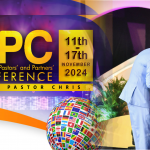
In practicing organizational ethics, there are some complexities that should be taken into account. When a person applies to an organization or the Civil Service for instance, they are coming with their own set of already formed value based judgments, belief systems, customs and habits that they formed from various avenues such as via the mass media, home environment, educational and religious backgrounds etc. These values and judgments may be different from that of the Organization or Civil Service. The gap between an individual’s ethical standards and attitudes learnt before coming to the organization and that of the organization is where the cognitive dissonance occurs.
Cognitive Dissonance is the state of psychological conflict or anxiety resulting from a contradiction between a person’s simultaneously held beliefs or attitudes and that of his organization. (Microsoft Encarta Dictionary, 2006).
The Code of Ethics properly implemented helps to align the employees’ values with that of the organization, thereby resolving the psychological conflict or anxiety. When the conflict is resolved in the Civil Service for instance, a Civil Servant may be sympathetic to a political party in opposition and yet be able to discharge their official obligations to the party in power objectively and without prejudice.
But this means the individual in question must be willing to adhere to the code so that it can help change their behavior from one that is anti-organization to one that is friendly to the organization and its core values..






